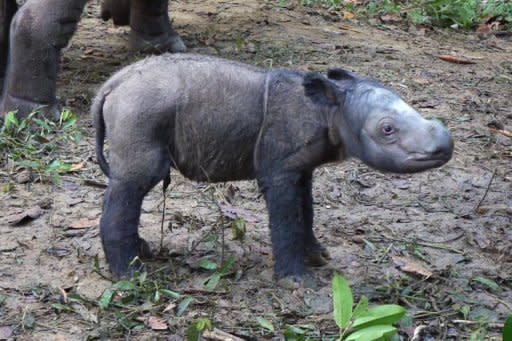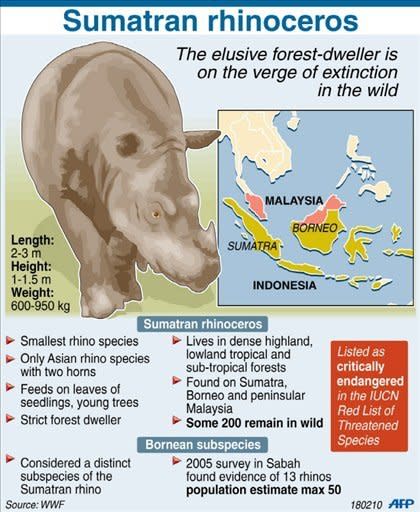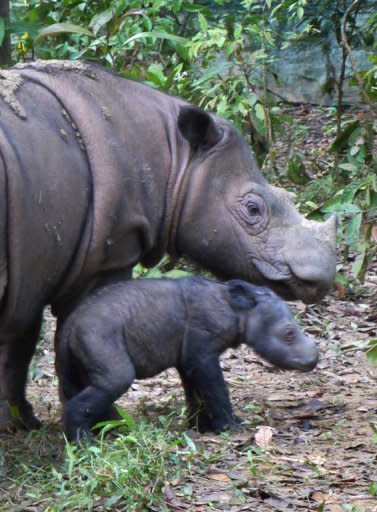Rare baby Sumatra rhinoceros named a "gift from God"
A critically endangered Sumatran rhinoceros, which became Saturday only the fourth birth in captivity in more than a century, was named a "gift from God". Forestry Minister Zulkifli Hasan said he had picked the name "Andatu" for the male calf, which was born at an Indonesian sanctuary, on the southern tip of Sumatra island. "Andatu" combines parts of its parents' name, Andalas the father and mother Ratu, and refers to "Anugerah Dari Tuhan", or Gift from God in Indonesian, he jubilantly told a press conference. "Andatu is the most appropriate choice" he said. "His birth is a milestone in the conservation of Sumatran rhinos and will build public confidence of rhino conservation efforts in our country," he added. Conservationist Widodo Ramono recalled the anxious moments before delivery. "We were all watching it from the CCTV, nobody made a sound. But the moment we saw the calf, everyone burst into screams. It was louder than seeing a player score a goal in a football match," he said. "We hope Ratu will eventually have five calves. For Andalas, we hope to mate him with other females," Ramono said. Ratu and Andalas were paired in 2009 at the sanctuary, two years after Andalas was brought from the United States at the Cincinnati Zoo in Ohio for a breeding programme. Andalas was born in September 2001, making him the first Sumatran rhino delivered in captivity in 112 years. Ratu grew up in the wild but wandered out of the forest and now lives at the Sumatran Rhino Sanctuary in Way Kambas National Park. The 12-year-old lost her first pregnancy after two months and her second after less than a month. She gave birth after a 16-month pregnancy. Before Andalas, the last Sumatran rhino born in captivity was in the Calcutta Zoo in India in 1889, according to the Rhino Resource Center, a British reference website. Sumatran rhinos have suffered a 50 percent drop in population numbers over the past 20 years. There are now believed to be fewer than 200 alive in Southeast Asia. They are victims of poaching and of the destruction of their habitat. According to environmentalists, two million hectares (five million acres) of forests are lost every year in Indonesia.




